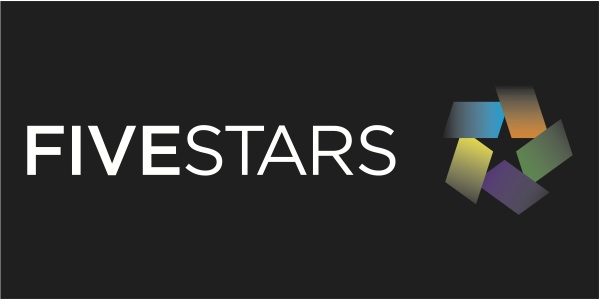FiveStars, the loyalty card solution originally launched out of Y Combinator’s Winter 2011 class, and now backed by $14 million in outside funding, is announcing a key new hire in its quest to expand the business nationwide: Pat Eastburn, formerly VP of sales for AT&T Interactive (now YP Holdings), will now serve as FiveStars’ VP of local sales. Along those same lines, the company is also announcing the acquisition of Miami-based Freqent, a smaller, app-based loyalty startup that will help FiveStars with its expansion into the Florida market.
Eastburn was selected from 300 applications and 50 interviews, and was chosen not only for his experience in building up a huge sales force – Eastburn had helped scale AT&T Interactive to 600 or so reps and $150 million in revenue – but also because he was a “culture fit” in FiveStars’ flat organization. “He served and led in what we believe was the right way, as opposed to some VP of sales that take a more dictatorial or absolute approach,” says FiveStars co-founder Victor Ho of the choice.
As for Freqent, while terms of the acquisition are not being disclosed, Ho told us that it was an all-cash transaction, and they bought the company mainly for its customer base of some 20 local businesses. Freqent actually reached out to FiveStars, not the other way around, as the startup had been going through its own challenges, forcing one of its founders to take outside employment. Whether or not any of the team will come over is yet to be decided. Other key assets include the mobile technology and some well-developed customer onboarding guidelines and processes.
Unlike FiveStars, Freqent’s solution used an Android application to track customer loyalty, where FiveStars has, so far, modeled itself after the CVS loyalty program, which involves either a swipe of a card or having the customer give the cashier their phone number at point-of-sale. Despite its seemingly low-tech offering, Ho says that making this system work for the small-to-medium sized business market actually involves a fairly high-tech approach.
The secret sauce in FiveStars solution is the patented way it has managed to integrate with 90+ percent of the POS systems on the market, including all the major players, without having to license their (often expensive) API technology. While the company won’t reveal the details, Ho notes that they’ve made an effort to hire some of the top technologists to work on this integration and have been in talks with POS vendors about partnerships.
“This is an area where we have a really strong advantage over our competitors,” Ho explains. “We’re the only [loyalty] player on the market that has been able to integrate with all the point-of-sales out there…The POS machine is like this goldmine of data – it has everything that people purchase, and it’s what the merchant actually interacts with regularly.” Other loyalty startups on the market, he adds, are just check-in systems. “Since they’re not on the POS, they don’t know what you buy.”
This deep integration has been key to FiveStars’ growth, which Ho claims is now outpacing that of the startups’ competitors. The company, now in 14 states, just hit 5 million in purchases, representing over $25 million in customer spending. Merchants have also now given away around $1 million in loyalty rewards. However, the company won’t reveal the size of its customer base citing “competitive reasons,” but did say that their average store signs up 500 customers. “That’s three to four times higher than any of the other competitive players you see in the market,” Ho adds. “For our average business, we’re responsible for nearly 1,000 purchases every single month.”
For comparison purposes, Belly said in May it has 1,400 businesses and 200,000 users (143 users per biz) and LevelUp has 3,000 businesses and 200,000 users (~70 users per biz). FlockTag recently claimed to have more, but it qualifies its numbers by “active” businesses, we discovered, saying it has 748 per active business. (It has 585 per total businesses, though.) So this 3-4x claim from FiveStars may not be all that current, perhaps. Still, it places the startup towards the top in terms of customer engagement.
Notably, Ho also said that when FiveStars opened in Chicago recently, it immediately stole 100 of Belly’s customers because of the benefit the stores saw with its POS integrations. Today, the company has offices in the San Francisco Bay Area, L.A., Chicago, Seattle and Dallas – the latter two of which were opened over the past month by new hire Eastburn, who has hit the ground running, apparently. The immediate goal now is to continue its nationwide rollout. But further down the road, the company wants to offer mobile apps and a solution that extends beyond loyalty.
“For example, there are a ton of players that want to get into the payments space – your Google Wallets of the world,” says Ho. “But none of those guys can see SKU-level data…because of our platform, there are a number of really interesting things we can do and that we’re working on.”


